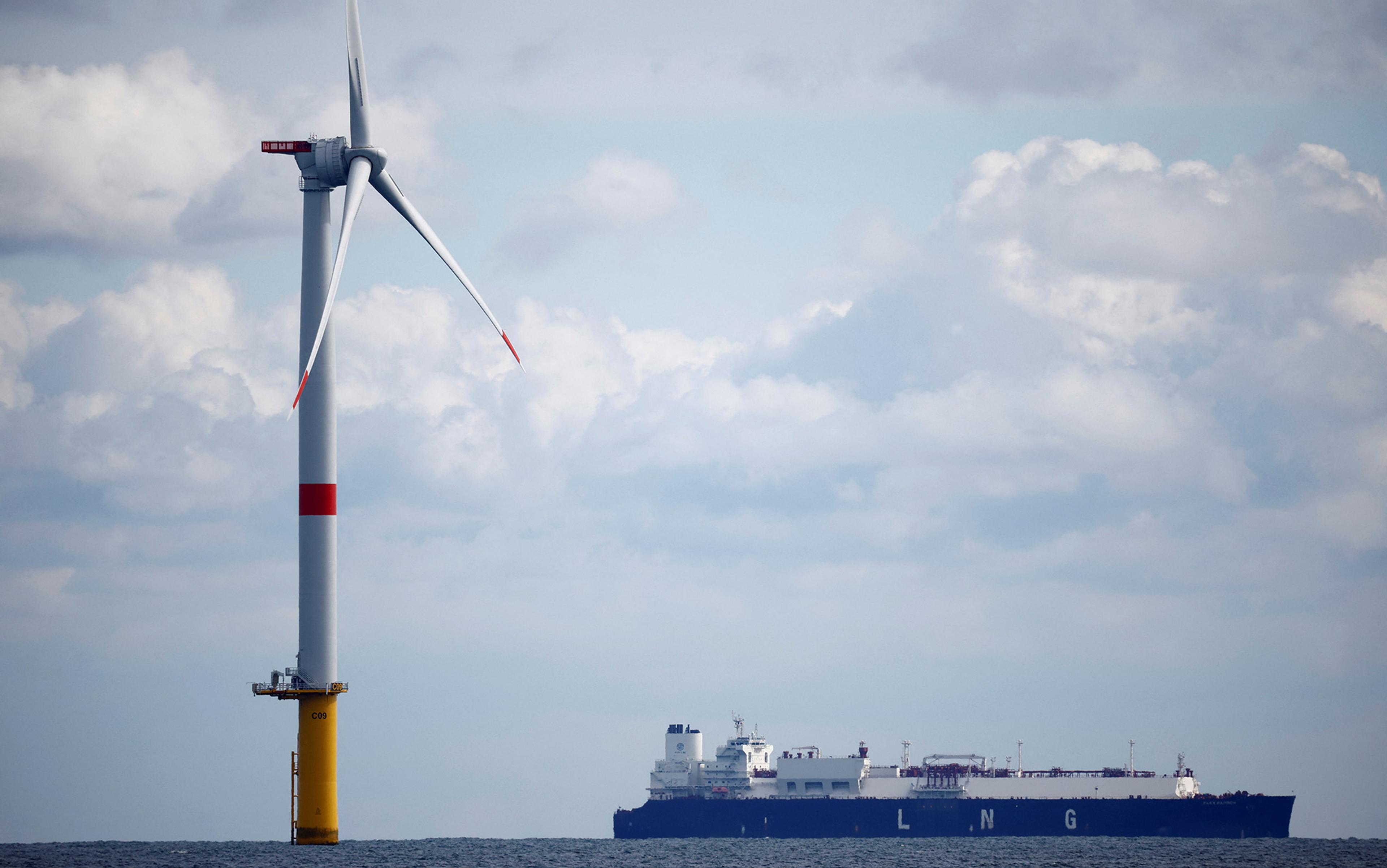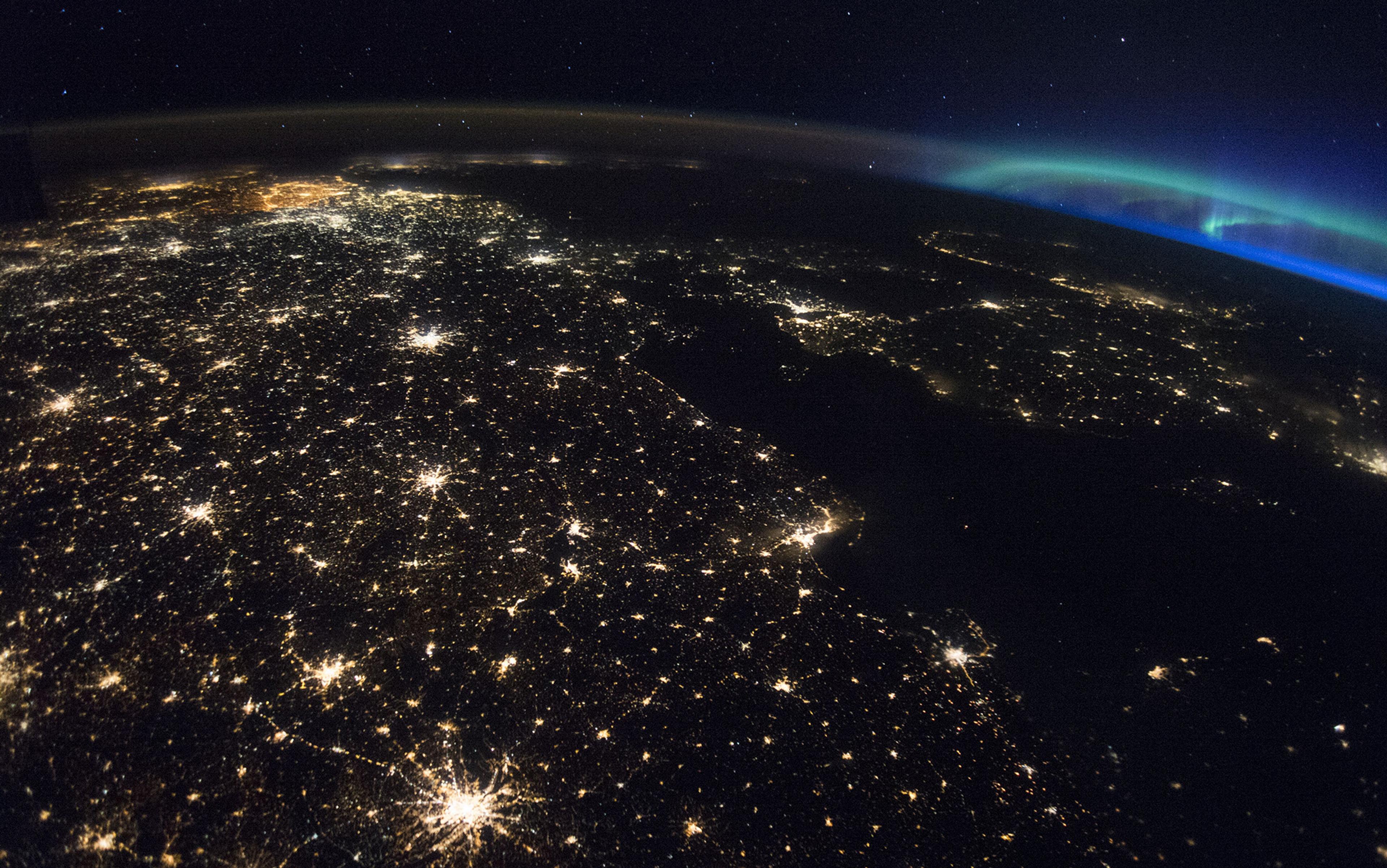At the heart of current environmental debates is a crucial question: is economic growth possible without environmental destruction? Climate change, biodiversity degradation, overexploitation of natural resources and many forms of pollution are evident problems, and their recognition is backed by a strong consensus of the sciences. It is a sign of the times that most people no longer deny the maxim that endless material growth is impossible on a limited planet. There are limits to growth, material and ecological. Only people dreaming about asteroid mining fuelled by fusion and facilitated by terraforming deny this tenet. Despite being often super-rich, like Elon Musk, in this regard they are fringe. Recognition of key environmental problems is becoming increasingly widespread, even if this is not met by necessary action.
However, alongside this is the dominant and widely accepted economic belief that growth is necessary – economic growth. It is needed not only to feed and clothe the poor of the world, but it is necessary for the energy and momentum of societies everywhere. Actually, if one listens to the eulogies of economic growth by politicians in wealthy countries, like my home country Finland, the latter is usually the main argument. Growth is needed, or else unemployment soars, pensions are unpaid, and debts accumulate.
It is widely acknowledged that in recent decades and centuries, economic growth has caused environmental problems. The severity of the ecological crisis is debated, some of it even denied, but this is the big picture. However, in recent years there has been a consistent effort to resolve this tension between economic growth and ecological limits with the notion of ‘decoupling’. (This should not be confused with the ‘decoupling’ of global trade and ‘friendshoring’ that is debated around US-China relations.) The basic idea is that economic growth can continue and literally decouple, or part ways, with material growth and environmental degradation. Growth can be green.
There are surely ecological problems, but they are not insurmountable. Just like the ‘dark Satanic Mills’ were cleaned, just like ozone depletion was overcome, any and all environmental problems will be resolved with growth, not without it. The connection between economic growth and negative impacts can be broken.
But not everyone agrees, and decoupling has become a hot topic in public debates. In February 2023, The New York Times published Paul Krugman’s column ‘Wonking Out: Why Growth Can Be Green’. Krugman stated that ‘it’s possible to decouple growth from environmental harm’ and aimed his column explicitly at people who claim that economic growth and environmental protection cannot be combined. He saw this putatively false claim emanating both from environmentalists (or the Left) and from people who oppose environmental policies. In effect, the former were labelled as useful idiots for the latter.
To back himself up, Krugman drew statistics from the Our World in Data site. Similar sentiments have been published in articles on the site over the years. In his article ‘How Much Economic Growth Is Necessary to Reduce Global Poverty Substantially?’ (2021), Max Roser stated forcefully that it will be possible to decouple economic growth from environmental harm. He too aimed his critique at an opposing group of people. For him, doubters of decoupling do not take poverty seriously:
If those who say that it is not possible to decouple growth from environmental harm are right, then the future will be bleak. If indeed there should be no possibility to sufficiently decouple growth from environmental impacts then the future will be either one of continuing global poverty or one of continuing environmental destruction, or both.
In the article ‘Shrink Emissions, Not the Economy’ (2018), also published on the Our World in Data website, four authors made a case for decoupling, focusing on climate emissions. They too noted how denying decoupling brings anti-environmentalists and some environmentalists into the same camp. However, now the opposition was named specifically: ‘degrowthers’. In a nutshell, degrowth is a loose intellectual and political movement that calls for stopping the kind of economic growth that is driving ecological destruction.
The idea is that environmental harm increases as countries become more affluent but tapers off after that
One vocal representative of the degrowth movement is Timothée Parrique. He wrote a detailed response to Krugman, accusing him of cherry-picking his evidence. Parrique ended his response with strong words:
The story of decoupling is reassuring; it’s a don’t worry, everything is fine, everything is going to be okay kind of thing to say. And this is precisely why that story is dangerous. As ecosystems are getting nightmarishly worse, the fable of green growth is acting as a kind of macroeconomic greenwashing, especially when mobilised to discredit other, more radical solutions to the ecological crisis.
A similar public exchange of words took place after Andrew McAfee’s combative essay ‘Why Degrowth Is the Worst Idea on the Planet’ (2020) was published in Wired. He claimed that the world’s richest countries have learned how to reduce their ‘footprint on Earth’. He also attacked degrowthers as being practically anti-science:
Some voices in the conversation about the environment seem wedded to the idea that degrowth is necessary, and they are unwilling or unable to walk away from it, no matter the evidence.
Referring to examples of cleaning local air pollution, he invoked another specialist concept: ‘the environmental Kuznets curve’. The idea is that environmental harm increases as countries become more affluent but tapers off after that. In a nutshell: only wealthy societies can really take care of the environment.
One of the big names in the degrowther circles, Jason Hickel, responded to McAfee on his blog. Like Parrique, he referred to the extensive research literature on the decoupling question, and pointed out how partial or false is the rosy picture about wealthy societies. He also claimed that, in criticising Hickel and degrowth in general, McAfee had distorted his views. His ending was, however, diplomatic:
My appeal to McAfee: let’s try to get beyond this sort of thing and engage more honestly with the empirical and theoretical work that has been done, so we can have more meaningful conversations. If we are going to realise our shared goals, we can and must do better.
Should not this engagement with empirical work and honest debate just be a matter of looking at the facts, checking out the right statistics? But this is not a simple matter. If we want to be serious about the issue, we have to frame the question properly. Meaningful discussion and even disagreement must happen within a shared frame.
Certain key questions have to be answered before any facts can be brought to bear on this issue. First of all: what kind of decoupling are we talking about? Is it relative or absolute? (More on this below.) Secondly: what is decoupled? It does not suffice to answer ‘environmental harm’ or ‘footprint on Earth’. As I wrote in an earlier essay for Aeon, environmental problems are legion, and aggregating them is highly problematic. And thirdly: from what are we supposed to decouple? What should keep growing?
If these questions are not answered, any discussion and debate will end up in confusion. There are no meaningful generic answers to the questions ‘Is decoupling possible?’ or ‘Is decoupling happening?’
If the current situation is unsustainable, relative decoupling is not enough
If decoupling of environmental impacts (or use of natural resources) from economic growth takes place, it can be of two kinds. It can be relative or absolute. In relative decoupling, both graphs keep climbing up, but environmental impacts grow slower. The speeds of growth decouple relative to each other. But environmental impacts still keep getting worse.
Depending on what kinds of impacts you are talking about – local air pollution, deforestation, climate emissions, plastic pollution – the critical limits are set differently. Perhaps some increase of some environmental impact can be stomached somewhere, if it is necessary to raise people from poverty or grow more food, for example. But if the current situation is unsustainable, relative decoupling is not enough. You need to diminish the impacts. When connected to the growth imperative, this means you need absolute decoupling. The economy grows while the impacts decrease.
It is, however, not sufficient that the impacts decrease. This has to take place fast enough. Again, here, environmental problems differ in their ecological dynamics, but with many there are specific timetables of mitigation. With climate change, you have the aspirational ‘safety limits’ of 1.5°C or 2°C and the carbon budgets that dictate the target years of net zero. In general, when there are serious risks of ecosystems (and, with them, human systems) flipping into new dangerous regimes, so-called ‘tipping points’, or else of severe irreversible damage, meeting the timetable becomes crucial.
But what do we need to decouple absolutely? As environmental problems differ in their geographic scale, their causes and their ecological dynamics, not all decouplings are equal. Successful elimination of local air pollution in cities is often used as an example of decoupling. However, one can quite easily understand that such pollution can be combatted by legislation or technological fixes irrespective of economic growth or decline. If certain practices are banned or made mandatory, that is it. As Parrique notes, air quality can very well be better in poorer circumstances.
Perhaps declining climate emissions is a more representative example? First of all, climate emissions are directly connected to the overall activity in society, especially energy production. If there is absolute decoupling there, that says something more general than, say, removing sewage from streets. Secondly, it is possible, quite self-evidently, to decrease climate emissions while growing the economy. If you shut down a lot of coal plants and transition to low-emission energy sources, emissions go down. Of course the economy can grow: new power systems have to be constructed, old ones dismantled. Eventually, societies will run into the realm of ‘hard to abate’ emissions from industry and agriculture, but the opening salvos are no-brainers. And, as Krugman notes, they can be good business.
As the climate scientist Zeke Hausfather noted in 2021, absolute decoupling of climate emissions has taken place already in many countries, mostly affluent Western countries that have increasingly moved away from coal and have more climate legislation. Nowhere has emission decline been fast enough: no country is on track to meet the stringent emission-cut targets. Note that absolute decoupling in these cases is true even if consumption-based emissions, that is, emissions inherent in imported goods, are counted in. Some decades ago, domestic emission decline was still somewhat illusory: it was mainly due to ‘externalising’ emissions through trade, that is, buying stuff from less wealthy countries. Since then, emission decline has stemmed more and more from domestic changes in energy production. Externalisation of some emissions takes place still, but it is not large enough to offset the general decline in emissions. And, of course, energy systems can change in the export countries too. Just look at China. Too little, too late, most likely, but still good news.
Because the current situation is unsustainable, the sustainable way is down – towards material degrowth
However, it is crucial to keep in mind that behind the façade of ‘the environmental crisis’ there is a legion of diverse issues. It is surely possible to lower climate emissions while other problems get worse: overfishing, plastic pollution, freshwater scarcity, erosion of farmland, deforestation… and, especially in its myriad forms, biodiversity decline.
Actually, climate mitigation, if done wrong, can end up exacerbating other problems. Bioenergy with carbon capture and sequestration (BECCS) is inherent in most climate scenarios. In a nutshell, it means that energy crops are grown, burned for energy, and then most of the emissions are captured technologically and stored somewhere. Large-scale cultivation of energy crops threatens to cause further deforestation, soil degradation and biodiversity decline, and added pressure on already scarce water resources in many areas. Bioenergy in general, for example excessive reliance on forest wood as fuel, tends to erode biodiversity. And many countries are waking up to realise (like Finland) that, as carbon sinks and storages in forests diminish, the putative green credentials of wood go up in smoke.
This is why, increasingly in studies of decoupling, extraction of natural resources has become a favourite metric. It is a rough tool, of course. Overfishing and sustainable fishing are different. Clearcutting rainforests is a particularly bad form of forestry. Sand is not herrings is not uranium is not apples is not oranges. If done carelessly, using flows of natural resources as a metric risks all kinds of problems of aggregation. Quality is paramount: we cannot read from those flows what we can and should do.
But we can read what we should not do. We are in an unsustainable and potentially disastrous situation with many dimensions of the environmental crisis. And material flows, the sheer amount of stuff extracted, processed, transported, used and discarded simply is the key driver for a variety of central forms of environmental impact. Because the current situation is unsustainable, the sustainable way is down – towards material degrowth. Here the analogy with climate emissions breaks down: there is no evidence of economy-wide absolute resource decoupling.
Economic growth all over the world is still strongly coupled with growing material consumption. Modern life has not ‘dematerialised’ with the promise of paperless offices, with internet and with the growing service economy. What’s more, ‘externalisation’ of resource use is still a fact of life. It is not analogous with the case of climate emissions. This makes sense: importing fruit and coffee from water-scarcity areas still uses up water; stuff produced with cleaner energy still needs raw materials.
This is why answers to the question ‘Is decoupling happening?’ can diverge radically depending on what environmental metric you are using and in which part of the world you are. And there is still the other question: ‘Is it happening fast enough?’ If not, the question arises whether it could happen faster without the growth imperative.
Thirdly, from what are we supposed to decouple? Remember, the issue of decoupling is not about whether environmental pressures can be diminished. Of course they can be. The issue is whether this can happen in the context of continuous economic growth. Some even claim that it is possible only with economic growth, the engine of innovation. At the extreme, the most technologically obsessed see acceleration through the worst of it, ‘burning through’ the historical bottleneck, as the only answer. We can clean up afterwards. Staying still is stagnation. But coining a phrase from James Baldwin, the fire next time can burn down the house and the foundations, along with the fire brigade.
The whole idea of decoupling remains tied to economic growth, and in our world that still means GDP. Pretty much everyone agrees that it is a crappy metric, but still those who argue for the necessity of growth end up arguing for continued GDP growth. Decoupling gives this crude tool a new lease of life. Alongside economic growth, people are of course talking about poverty elimination, education, ending hunger and creating human wellbeing. But the question is, are these things fatefully tethered to increasing GDP and thus increasing extraction of natural resources?
A crucial ancillary question is, does the world need to see economic growth for everyone, everywhere, all the time? This is actually an issue pointed out repeatedly by degrowther figures like Parrique and Hickel. We live in a world of deep systemic inequality within regions and between regions, with overconsumption and underconsumption, with humongous carbon and material footprints for some, and specific problems related to poverty and insecurity for some. The latter people surely need economic growth, and material and energetic growth. But the future will be bleak, if bettering the lot of billions requires overconsumption by the affluent minority.
The real issue is whether diverse environmental pressures are relieved fast enough to safeguard our continuation
This perhaps is the great lure of the idea of decoupling: it promises that everything can change without anything really changing. We are already on our way to a better world, so any kind of systemic change is not needed. All boats are raised, wealth trickles down, and so on.
In the end, however, the whole toing and froing about decoupling may itself be a confusing dead end. It anchors us to the abstraction of GDP, to any idea of aggregated and undifferentiated growth and, conversely, it seems to invite an equally abstract environmental metric as a counterpoint. Decoupling A from B. It plays havoc with contextuality.
The crux of the matter is not whether decoupling is possible. The real issue is whether, both globally and in regions all around the world, diverse environmental pressures are relieved fast enough to safeguard the continuation of our societies. It would be quite nice if we also safeguarded the continuation and resilience of the diverse ecosystems we live among. In the end, these goals are connected, even if the connections are not always clearly defined, and thus are easily ignored. Living without a stable life support system is not possible. And, of course, the world is inhabited by other beings too.
It is a secondary question how the economic accounting of that development is made. GDP itself is a creature conjured by accounting, and not a stable one at that. Changes in accounting practices can and have caused shifts of GDP without corresponding changes in material reality. So perhaps clever collective accounting tricks can be devised to put a positive economic sign for reaching a safe ecological zone for our societies. That would be a radical change.
The other crux of the matter is not growth, it is wellbeing. This has been grasped beautifully under the banner ‘A Good Life for All Within Planetary Boundaries’. Starting with a landmark article in Nature in 2018, a group of researchers has tried to answer a devilishly difficult question. Is it possible to realise sufficiently good life for all people of the world, even until the global population stabilises, and remain within a safe ecological zone? Currently, no society in the world manages to do both. And, conversely to what the eulogists of decoupling repeatedly state, the wealthier societies tend to overstep overall ecological boundaries more, even if they succeed better in some dimensions.
Answering this question, and making it a reality, will require contextual understanding and tailored solutions. It requires changing the provision systems of societies, the ways we are housed, clothed, fed, healed, transported, educated and so on. People live in different circumstances, and societies too face different challenges. There is no one grand question of decoupling that needs answering. We need many better questions and a legion of answers for the host of our problems.






